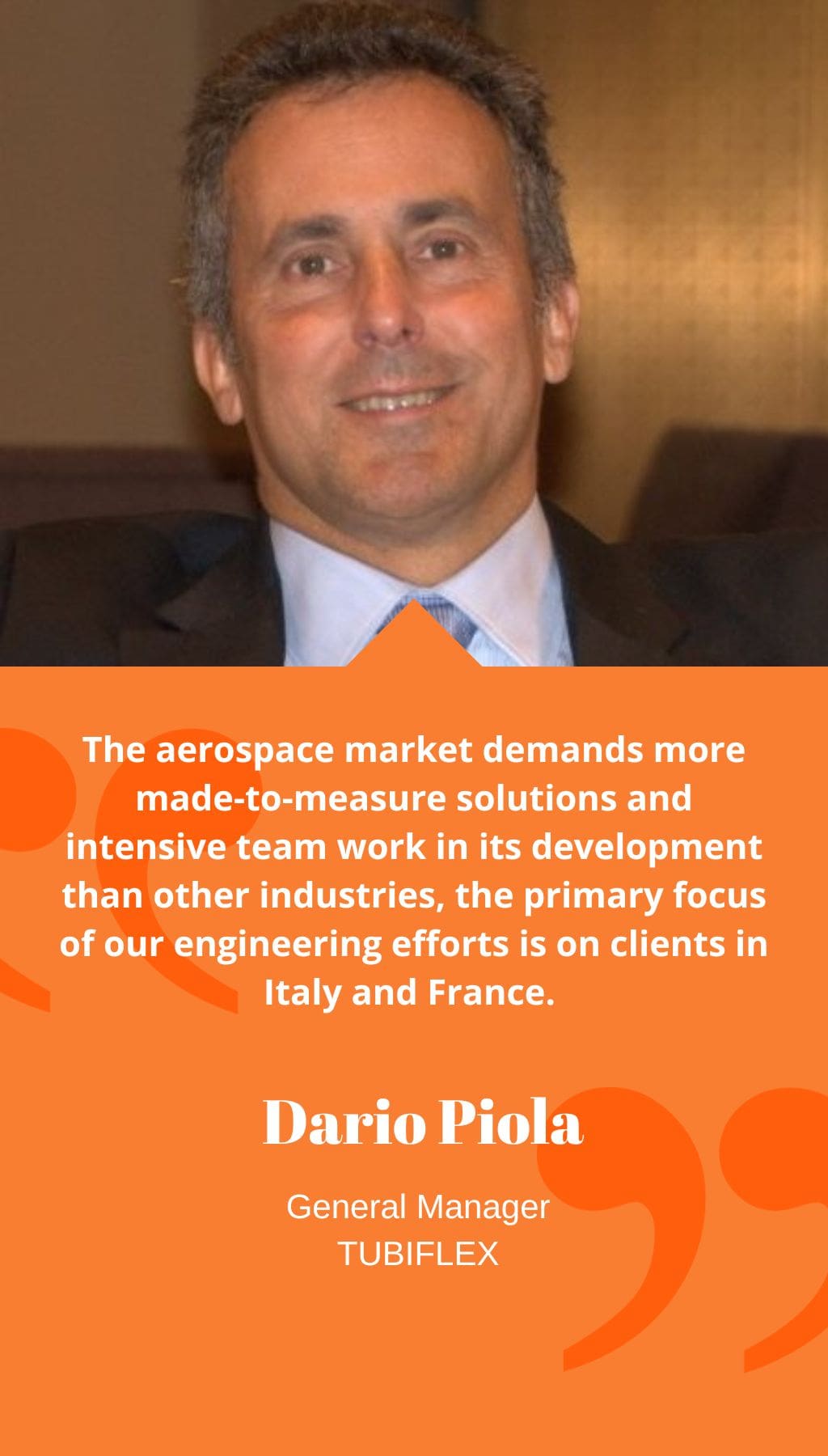
- Italy | 17 April 2018

Tubiflex has been a company since 1951. Can you give us a brief overview of its evolution and when it began activities in the aerospace industry?
Yes, certainly. Our company’s origins were in the industrial and automotive sectors due to our location in Turin. It wasn’t until the late 1970s that we began sporadic dealings with the aerospace market. However, these early experiences helped us develop our approach to the market and focus on quality. From 2008 onwards, we started focusing more on the aerospace industry, coinciding with our EN 9100 certification and our membership of TPA. Currently, the aerospace industry accounts for approximately 18% of our turnover, while the automotive industry is our largest area at 20%. We have an annual turnover of around €22 million and serve up to 600 recurring customers across 35 different countries.
How has Tubiflex developed its expertise in the aerospace industry since then and how has this affected your product offering?
Our company offers a wide range of products for fluid conveyance, as well as stainless steel flexible hoses and assemblies, composite hoses, bellows, expansion joints, and PTFE convoluted hoses and assemblies based on proprietary manufacturing technologies. We have been able to leverage our experience across a wide range of applications and business lines to offer our customers new, innovative products. As a result, we have become a key producer of components such as drain conduits, bleed lines, ECS, fuel conveyance pipes, ventilation conduits, and components for special applications in rocket launchers.
Tubiflex was recently acquired by Interpump Group. How do you think this acquisition will impact the company moving forward?
We were acquired by Interpump in early May 2016, and we believe that this acquisition will have a positive impact on our company moving forward. Interpump is the undisputed leader in its market, and by adding Tubiflex’s product offerings to its portfolio, we anticipate an improvement in our revenues and synergies in general. Interpump operates in many different markets, which provides us with opportunities for growth and expansion.
Can you tell us more about Tubiflex’s customer base and why the company is their partner of choice?
Our clients are located all around the world. However, because the aerospace market demands more made-to-measure solutions and intensive team work in its development than other industries, the primary focus of our engineering efforts is on clients in Italy and France. We have gone from having four original customers to thirteen, and we expect to gain two additional clients in the near future, which will raise our aerospace revenues from 3.5% of overall turnover to our current figure of 18%.
Could you provide us with an example case study in which Tubiflex has used cross-fertilization of technologies in the aerospace sector?
Sure. We produce flexible conduits for one of Europe’s largest helicopter manufacturers. The client was using a titanium system that made it difficult to fit the piping to the body of the aircraft, and fitters had to force the final connection, which occasionally resulted in breakages. Tubiflex came up with a solution using stainless steel, which, although heavier than titanium, allows for easily bendable corrugations. This design is common in the automobile industry but had not yet made the leap to the aerospace industry, so we patented it. Our more flexible solution not only avoids breakages but is also more compact, decreasing the overall weight and reducing fitting time from one shift to less than two hours.














